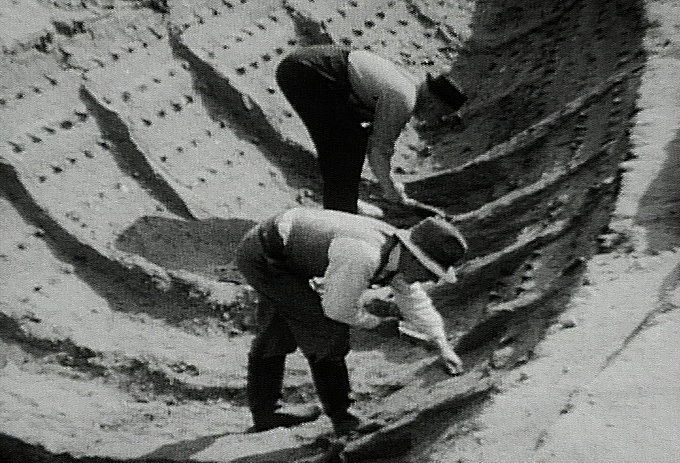Mainly, the poetry would have been spoken out loud, and listened to, or "recited", rather than being read silently from a book.
Of course, the most famous poem from this time is "Beowulf", partly because it is the largest and longest, and partly because it tells an exciting and varied tale of the hero's struggle against different monsters, Grendel, and Grendel's mother, and a dragon; Beowulf, in the end, dies fighting a dragon to save his people. But it is a thoughtful poem too, and there is lots of interesting detail about the way of life at that time, such as communal dining in halls, and ships and sea faring. Even the monsters are given sympathetic touches in their characters.
The poem ends by describing Beowulf himself, "they said that of the world's kings, he was the mildest of men and the gentlest, the kindest to his people, and the most eager for praise".
My main photo shows the belt buckle from the Sutton Hoo ship burial, which is the sort of ornament which a very high status leader like Beowulf would have worn. And here is a page of the manuscript:

By Unknown medieval - British Library (Manuscripts blog), Public Domain, Link
If you are tired of fighting monsters, then there is plenty of other interesting material in Old English. Two poems which describe ships and travelling are "The Seafarer", and "The Wanderer". Here is my translation of some lines from "The Seafarer":
"Nor is he mindful of the harp, nor of the receiving of rings, nor of the joy of a woman, nor of the happiness of the world, nor of anything else, except for the rocking of the waves; and always has longing, he who hastens to the sea. Groves take on blossom, the town grows fair, the plains grow beautiful, the world quickens, and all these recall the eager mind, the heart, to journey, so that people think of departing far on the ocean waves".
"Quickens" is a word here which means nowadays goes faster, more speedily, but is used here in its older sense of coming alive, growing, awakening. It comes from the Old English, "cwic", which gives us the modern word, "quick" or fast, but which used to mean, "alive".

By Harold John Phillips - Screen capture of image from home movie, Public Domain, Link
My favourite Anglo-Saxon poem is probably "The Wanderer". This has travelling and rowing over the icy waves in it too. It is about a man wandering in exile, and has memorable descriptions of how the world turns to ruin, and snowstorms bind the earth!
There are also battle poems, about conventional Anglo-Saxon warfare with no monsters, religious verse, riddles, and a mysterious short poem called, "Wulf and Eadwacer", whose meaning is intriguing but elusive,
"Wulf is on an island, I am on another...one easily tears apart what was never together".
Fortunately, there are many translations available of Anglo-Saxon verse, because learning to read it does take some effort. Just like in German or in Latin, Old English nouns and verbs have case endings, many of which are no longer used in modern English. So in a way, the English language of today is simpler. Nowadays, we use "the", the definite article, to refer to a specific noun. But in Old English, there are several different forms of "the" which we need to choose between, depending on the number or gender or grammatical case of the noun. There are even a few slightly different letters in the alphabets of Old and modern English, and the punctuation is all differen Often, though, as with "cwic", you can recognise in the Anglo-Saxon word one which we still speak in English today, and that is very pleasing.



Comments (0)